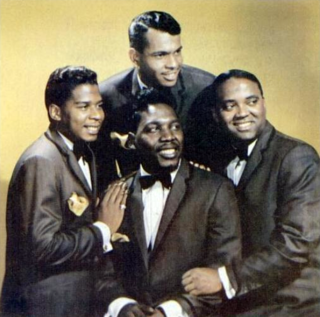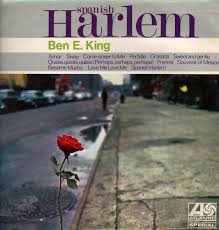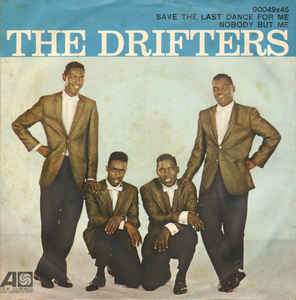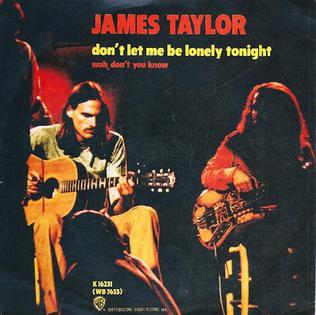Related Research Articles

The Drifters are an American doo-wop and R&B/soul vocal group. They were originally formed as a backing group for Clyde McPhatter, formerly the lead tenor of Billy Ward and his Dominoes in 1953. The second group of Drifters, formed in 1959 and led by Ben E. King, were originally an up-and-coming group named The Five Crowns. After 1965 members drifted in and out of both groups and many of these formed other groups of Drifters as well. Over the succeeding decades, several different bands, all called the Drifters, can trace roots back to these original groups, but contain few—if any—original members.

The O'Jays are an American R&B group from Canton, Ohio, formed in 1958 and originally consisting of Eddie Levert, Walter Lee Williams, William Powell, Bobby Massey, and Bill Isles. The O'Jays made their first chart appearance with the minor hit "Lonely Drifter" in 1963, but reached their greatest level of success once Gamble & Huff, a team of producers and songwriters, signed them to their Philadelphia International label in 1972. With Gamble & Huff, the O'Jays emerged at the forefront of Philadelphia soul with "Back Stabbers" (1972), and topped the US Billboard Hot 100 the following year with "Love Train". Several other US R&B hits followed, and the O'Jays were inducted into the Vocal Group Hall of Fame in 2004, The Rock and Roll Hall of Fame in 2005, and the Rhythm and Blues Music Hall of Fame in 2013.
Bertrand Russell Berns, also known as Bert Russell and (occasionally) Russell Byrd, was an American songwriter and record producer of the 1960s. His songwriting credits include "Twist and Shout", "Piece of My Heart", "Here Comes the Night", "Hang on Sloopy", "Cry to Me" and "Everybody Needs Somebody to Love", and his productions include "Baby, Please Don't Go", "Brown Eyed Girl" and "Under the Boardwalk".

Benjamin Earl King was an American soul and R&B singer and record producer.

Greatest Hits is the eleventh official album release for English musician Elton John, and the first compilation. Released in November 1974, it spans the years 1970 to 1974, compiling ten of John's singles, with one track variation for releases in North America and for Europe and Australia. It topped the album chart in both the United States and the United Kingdom, staying at number one for ten consecutive weeks in the former nation and eleven weeks in the latter. In Canada, it was number one for 13 weeks between December 14, 1974, and March 22, 1975, missing only December 28, 1974, at number 2 to Jim Croce's Photographs & Memories.
"It's Over" is an American song composed by Roy Orbison and Bill Dees and sung by Orbison. The single was produced by Fred Foster and engineered by Bill Porter.

"Spanish Harlem" is a song recorded by Ben E. King in 1960 for Atco Records. It was written by Jerry Leiber and Phil Spector and produced by Jerry Leiber and Mike Stoller. "Spanish Harlem" was King's first hit away from The Drifters, peaking at number 15 on Billboard's rhythm and blues and number 10 in pop music chart.
Albert Narvel Felts is an American country music and rockabilly singer. Known for his soaring tenor and high falsetto, Felts enjoyed his greatest success during the 1970s, most famously 1975's "Reconsider Me".

"Save the Last Dance for Me" is a song written by Doc Pomus and Mort Shuman, first recorded in 1960 by American musical group the Drifters with Ben E. King on lead vocals. It has since been covered by several artists, including Dalida, the DeFranco Family, Emmylou Harris, Dolly Parton, and Michael Bublé.

Sgt. Pepper's Lonely Hearts Club Band is a double album produced by George Martin, featuring covers of songs by the Beatles. It was released in July 1978, as the soundtrack to the film Sgt. Pepper's Lonely Hearts Club Band, which starred the Bee Gees, Peter Frampton and Steve Martin.

The Friends of Distinction were an American vocal group founded by Harry Elston and Floyd Butler, best known for their late 1960s hits, "Grazing in the Grass", "Love or Let Me Be Lonely", and "Going in Circles".

"Mr. Lonely" is a song co-written and recorded by American singer Bobby Vinton, backed by Robert Mersey and his Orchestra. The song was first released on Vinton's 1962 album, Roses Are Red.

The Drifters' Golden Hits is a 1968 compilation album by American doo wop/R&B vocal group The Drifters. The collection of the bands' later hits charted at #22 on Billboard's "Black Albums" chart and at #122 on the "Pop Albums" chart.
The Trade Winds was an American pop group formed in Providence, Rhode Island. The group's members were singer-songwriter and record producer Peter Anders and Vini Poncia, who previously had a hit single under the name "The Videls" with a song titled "Mr. Lonely", which hit #73 on the U.S. Billboard Hot 100 chart in 1960.

The discography of American country music singer Marty Robbins consists of 52 studio albums, 13 compilation albums, and 100 singles. In his career, Robbins has charted 17 Number One singles on the Billboard Hot Country Songs charts, as well as 82 Top 40 singles.

"Don't Let Me Be Lonely Tonight" is a song written and performed by American singer-songwriter James Taylor, from his 1972 album One Man Dog. The song has been included on three of Taylor's greatest-hits collection albums: Greatest Hits (1976), Classic Songs (1987) and The Best of James Taylor (2003). Taylor re-recorded the song for the 2001 Michael Brecker album Nearness of You: The Ballad Book; this rendition won Taylor the Grammy Award for Best Male Pop Vocal Performance in 2002.
"Lonely Blue Boy" is a song written by Ben Weisman and Fred Wise and performed by Conway Twitty. It reached #6 on the U.S. pop chart and #27 on the U.S. R&B chart in 1960. It was featured on his 1960 album Lonely Blue Boy.
"(If You Cry) True Love, True Love" is a song written by Doc Pomus and Mort Shuman and performed by The Drifters. In 1959, the track reached No. 5 on the U.S. R&B chart and No. 33 on the U.S. pop chart.
"Dance with Me" is a song written by Lewis Lebish and Elmo Glick and performed by The Drifters. In 1959, the track reached No. 2 on the U.S. R&B chart, No. 15 on the U.S. pop chart, and No. 17 on the UK Singles Chart.
"I Count the Tears" is a song written by Doc Pomus and Mort Shuman and performed by The Drifters, with Ben E. King singing lead. In 1960, the track reached No. 6 on the U.S. R&B chart, No. 17 on the U.S. pop chart, and No. 28 on the UK Singles Chart.
References
- ↑ The Drifters, "Lonely Winds" Single Release Retrieved May 14, 2023
- ↑ The Drifters, "Lonely Winds" Chart Positions Retrieved May 14, 2023
- ↑ The Drifters, The Drifters' Greatest Hits Retrieved May 14, 2023